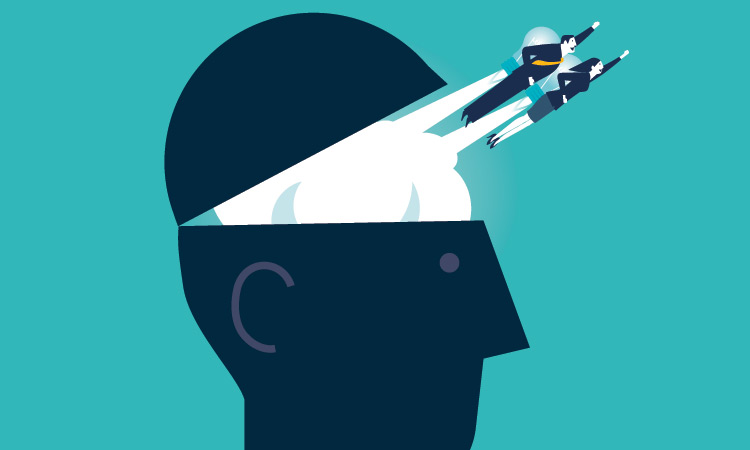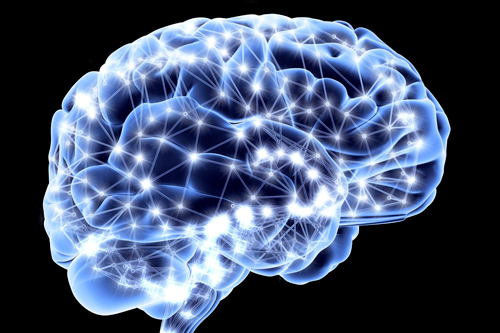 Humans are always looking for quick and easy ways to stimulate the brain and improve mental performance, from caffeine to antioxidants, to brain-boosting games. Now, researchers at UCSF have actually discovered a longevity gene that boosts brainpower in humans, called “KLOTHO,”—named for a Greek goddess of fate who “spins the thread of life.” Having the gene variant KL-VS is like winning the genetic lottery—it provides cognitive boosts in learning and memory, increases your lifespan and lowers your risk of stroke.
Humans are always looking for quick and easy ways to stimulate the brain and improve mental performance, from caffeine to antioxidants, to brain-boosting games. Now, researchers at UCSF have actually discovered a longevity gene that boosts brainpower in humans, called “KLOTHO,”—named for a Greek goddess of fate who “spins the thread of life.” Having the gene variant KL-VS is like winning the genetic lottery—it provides cognitive boosts in learning and memory, increases your lifespan and lowers your risk of stroke.
When researchers increased the KLOTHO gene levels in mice, it produced smarter mice, possibly due to strengthening synaptic connections between neurons. The KLOTHO gene contains a blueprint for a protein that is made primarily by cells of the kidney, placenta, small intestine and prostate. Researchers believe that decreases in this protein as we age may be partly responsible for a decline in cognitive performance.
While therapeutics made with this gene protein are a long way off, there are other ways to boost your brainpower now through lifestyle habits:
1. Feed your brain
It turns out your mother was right—you do need to eat your veggies. Good nutrition is one of the single most crucial elements you can control to keep your brain sharp. Matilde Parente, a California doctor and author, stresses the importance of eating healthy for normal blood sugar, to avoid insulin-resistant states, and to lower inflammation in the body and brain from excess fat. “Eating healthy helps keep your blood vessels in good shape, to supply your brain with the nutrients and oxygen it needs,” she says.
2. Stimulate your brain
Brains need stimulation to keep neurons firing, but not all stimulation is created equal. Research has found that too much “screen time” can have a negative effect on the brain, particularly the cerebral cortex, which is involved in emotional processing, executive attention, decision making, and cognitive control. Parente suggests you “Avoid toxic screen time spent engaging your brain with multimedia soaked in violence, bad behaviors, dark themes, and other non-life-enhancing packaged entertainment.”
Instead, she says, stimulate your brain with life-enhancing activities, such as connecting with others, feeling and expressing gratitude, learning new things, expressing creativity, deepening your spirituality, and more.
3. Exercise your brain
Equally as important for boosting brain power is getting enough exercise, which stimulates neurotransmitters, keeping all organ systems functioning well, and contributes necessary oxygen and blood flow. Three forms of exercise in particular may have the best brain benefit: Yoga, Tai Chi, and weight training.
Yoga is often championed as enormously good for your health, but a new study from the National Institute of Health has shown that the brains of yogis have greater volume of gray matter and fewer cognitive declines than those who do not practice. Yoga appears to increase volume in the somatosensory cortex, which contains a mental map of the body, the superior parietal cortex, and the visual cortex. It also helps strengthen the hippocampus, a brain structure important for learning and memory.
“Yoga is like the superfood of exercise,” says Katie Brauer, Chief Program Officer of YogaSix, a series of yoga studios that promote six key results that yoga can offer, making you: stronger, leaner, calmer, clearer, braver and encouraging you to go further in all areas of your life.
She points out that yoga has been around for some 5,000 years. “It’s a one-stop shop that offers physical as well as physiological benefits on every level. In the Western world, everything takes us out of our body as we move at a million miles an hour. Yoga offers an opportunity to turn inward,” she says.
Another form of lesser-known exercise that’s good for the brain and body is Tai Chi— a slow, meditative martial art dating back to the 16th century. A recent study published in the New England Journal of Medicine found that people with Parkinson’s—a degenerative brain disease—showed balance improvements after doing Tai Chi.
John Salat, Author of Tao Art of Flow and a Tai Chi Master, believes the body also “thinks” through its flow (or lack) of vital energy. “We forget the body is a source more primal and truthful than just the brain cells,” he says. “Our mental health depends on this intrinsic life force. When the vital flow of life force is slowed by stress, it diminishes function to parts of the specific cells and anatomy.”
Finally, a study published in American Geriatrics Society found that lifting even light weights two to three times a week significantly reduced age-related lesions in the white matter of the brain, responsible for communicating messages between brain structures. In the long run, common sense and good health practices can boost your brainpower now, and keep it sharp for years to come.
Click here to get inspired by Rose’s easy steps to positively change your mind


